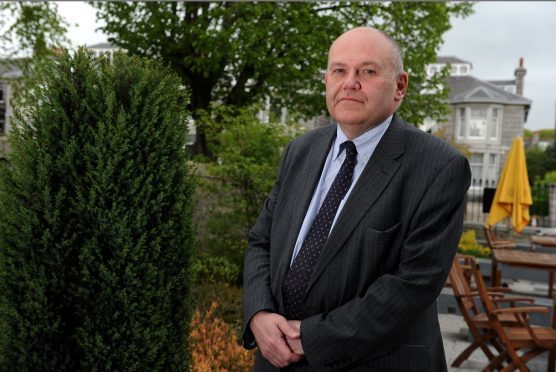A former Aberdeen City Council leader with a prominent Brussels role has voiced fears the city’s hydrogen bus project could be at risk after Brexit referendum vote.
On Wednesday, councillors unanimously backed a motion to write to leaders in Westminster and Holyrood, calling for clarity over any potential shortfall in EU funding.
And last night, Labour member Barney Crockett, who was recently appointed as the European region’s president of hydrogen and electric mobility, insisted the city must continue to reach out for funding in the post-Brexit future.
He sits as an advisor to the EU on sustainable fuel in this capacity.
However, a leading north-east Leave campaigner has responded it is “little wonder” that Mr Crockett, who holds numerous other posts in Brussels and travels there frequently, was supportive of the institution.
Mr Crockett’s job now hangs in the balance following the UK’s decision to leave the EU.
But he said the council must keep working with the institution to pursue funding streams for the likes of the city’s hydrogen bus project.
He added: “Aberdeen takes a very prominent position in Europe and I think that’s something that a lot of people in the city don’t know.
“So we have decided to be proactive and write to the Scottish and UK governments seeking clarity.
“We, as a city, have a powerful voice in the institution and, like Iceland or Norway, we need to ensure we are right at the heart of it even if we are outside the body.
“I don’t know what is happening with my own position, but I think everyone in the EU is working hard to work out the best arrangements going forward.”
However, a former colleague of Mr Crockett claimed the EU cash in question had been given to the institution by Granite City taxpayers in the first place.
Former vice-finance convener Ross Thomson, now a north-east Tory MSP, added: “This money was given to the EU by us and they give us some back. Just think what we can do if we keep it all.
“I would remind Mr Crockett as a Labour man that working people up and down the country voted to leave the EU, so we could make our own funding decisions here.”
